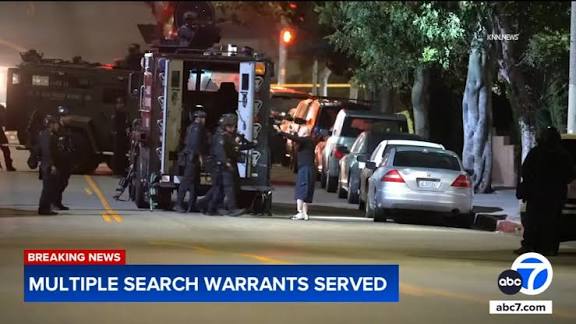Virginia Title IX Nightmare: Locker Rooms & Parental Rights Collide

Students accused of sexual misconduct are not always assured of their fixed procedure rights. Our lawyers believe that every student is entitled. Today we will discuss about Virginia Title IX Nightmare: Locker Rooms & Parental Rights Collide
Virginia Title IX Nightmare: Locker Rooms & Parental Rights Collide
In recent months, Virginia has become a flashpoint in the national debate over Title IX, sex, gender identity, students’ privacy, and parental rights. What began as school policy changes and student disputes has escalated into federal investigations, litigation, and policy reversals. Central to the controversy are questions such as: Who gets to decide who uses which locker room? What are the protections afforded by Title IX? How do parental rights fit into this? And where does the balance between inclusion and privacy lie?
This article unpacks the key events, legal arguments, and tensions — offering context and possible paths forward.
What is Title IX — and what changed?

Title IX is a U.S. federal civil rights law passed in 1972, which prohibits discrimination “on the basis of sex” in any education program or activity receiving federal financial assistance. Traditionally, that has meant schools must treat male and female students equally in access to educational programs, athletics, facilities, etc.
The disputed shift involves whether “sex” includes gender identity (i.e. transgender, non-binary identity), in terms of which restrooms, locker rooms, and sports teams students can access. Under newer inclusive policies adopted by several Northern Virginia school divisions, students are allowed to use restrooms and locker rooms that correspond to their asserted gender identity rather than their sex assigned at birth.
Key Incidents in Virginia
Virginia has seen several high-profile incidents that have fuelled the controversy.
-
Locker Room Complaint in Loudoun County
At Stone Bridge High School, three male students said they felt uncomfortable when a biologically female student, who identifies as male, changed clothes in the boys’ locker room and recorded part of the encounter. The boys were subjected to a formal Title IX investigation for their complaints. Parents said the students were punished for merely expressing discomfort. -
State and Federal Investigations of School Policies
The policies of several school divisions — Fairfax County, Loudoun County, Arlington, Prince William County, and the City of Alexandria — have been found by the U.S. Department of Education’s Office for Civil Rights (OCR) to violate Title IX. The issue: those policies allow students to access restrooms and locker rooms based on their gender identity rather than biological sex. OCR found that such policies have led to female students witnessing inappropriate behavior, feeling unsafe or avoiding restrooms altogether. -
Parental Rights & Free Speech Concerns
Tensions have also arisen over how students, parents, and school authorities communicate or are allowed to express concerns. In Loudoun, the parents of some boys say their sons were investigated for simply questioning the policies, rather than for threatening behavior. The Virginia Attorney General’s office has flagged potential retaliation and misuse of policy enforcement. -
The Federal Pushback & Legal Tension
The Trump‐Administration Department of Education (DOE) has taken the position that these inclusive gender identity policies violate Title IX — under its interpretation that “sex” under Title IX means biological sex only. It has issued findings, threatened withholding federal funds, and demanded policy changes. The affected school districts have pushed back, citing precedent and legal rights of transgender students.
Legal & Policy Frameworks
To understand what’s at stake, we need to look at the legal interpretations, precedents, and policy options.
Interpretations of “Sex” under Title IX
-
Biological Sex Interpretation: Some claim that “sex” in Title IX refers strictly to sex assigned at birth or biological sex, meaning policies should segregate facilities and sports by biological categories. This view focuses on privacy, safety, and fairness for cisgender students.
-
Gender Identity Interpretation: Others argue that sex discrimination under Title IX must include gender identity. Under this view, students should have access to facilities and sports aligning with their gender identity. This view emphasizes inclusivity, nondiscrimination, and support for transgender and gender‐expansive students.
Key Court Precedent: Grimm v. Gloucester County School Board
Virginia is no stranger to this debate. A key precedent is Grimm v. Gloucester County School Board, where Gavin Grimm, a transgender male student, sued his school board for denying him access to the boys’ restroom. The Fourth Circuit ruled in favor of Grimm, finding that denying him access violated equal protection under the 14th Amendment, and provided some guidance on applying Title IX. School districts in Virginia reference Grimm in defending inclusive gender identity policies.
OCR Findings
In July 2025, the DOE’s Office for Civil Rights concluded that several Northern Virginia school divisions are out of compliance with Title IX due to policies allowing restroom and locker room access based on gender identity. The findings cited complaints of students avoiding restrooms, feeling their privacy violated, and in some cases witnessing inappropriate behavior. The OCR issued proposed resolution agreements requiring changes.
The Arguments
On both sides, there are strong arguments — legal, ethical, and practical.
Arguments for Restricting Access Based on Biological Sex
-
Privacy and Safety: Advocates for separating facilities by biological sex argue that students, especially females, may feel unsafe or uncomfortable if someone of the opposite sex (as assigned at birth) changes or undresses nearby.
-
Protection of Rights: Some argue that sexual harassment or inappropriate behavior can arise when mixed biological sexes use intimate spaces, and that schools must protect students from such risks.
-
Statutory Interpretation & Legislative Intent: Supporters of the biological sex view claim that Title IX’s original intent, and much of its judicial precedent, did not contemplate gender identity as equal to biological sex, and that changing the interpretation should be done by legislatures rather than regulatory agencies.
-
Parental Rights: Parents who feel that policy changes are made without sufficient notice or input argue that their right to direct their children’s welfare and education is being sidelined.
Arguments for Inclusion Based on Gender Identity
-
Nondiscrimination and Equity: Proponents of inclusion argue that discrimination based on gender identity is a form of sex discrimination, and denying access to facilities consistent with one’s gender identity harms transgender and non‐binary students.
-
Psychological & Social Well-Being: Studies and testimonies often report that exclusion and forced misalignment (e.g., forcing students to use facilities which don’t match their identity) contribute to mental health concerns, stigma, and social isolation.
-
Legal Precedent: As mentioned, Grimm and other rulings have recognized rights for transgender students under the constitutional and Title IX frameworks.
-
Implementation of Safe Accommodations: Inclusive policies often include offering private or single‐occupancy facilities for those who prefer them, balancing privacy with inclusion.
Parental Rights: Where They Fit In
One of the most contentious pieces of this conflict is the role of parents — their rights, their involvement, and their legal standing.
-
Notification and Consent: Some school districts’ policies allow students to change names, pronouns, or assert gender identity without parents’ notification or consent. This has raised concerns among parents who feel excluded from decisions affecting their child’s privacy and safety.
-
Free Speech & Complaint Rights: Parents and students have raised that expressing discomfort, or questioning policy, has led to investigations or disciplinary actions. Whether these responses restrict free speech or violate due process is under legal scrutiny.
-
Policy Oversight and Accountability: Many parents want more transparency about how policies are made, applied, and monitored. They argue for stronger oversight — whether through school boards, state legislation, or legal challenges.
Possible Harms & Challenges
The Virginia case reveals possible harms on multiple sides, plus real challenges in implementation.
-
Discomfort, Trauma, or Distress for Students: Biological girls may feel violated or unsafe; transgender students may feel stigmatized or excluded.
-
Conflicting Rights: The rights to privacy and dignity of cisgender students vs. the rights to identity and inclusion of transgender students sometimes clash.
-
Legal Uncertainty: Courts are still sorting out how Title IX applies to gender identity. Differing rulings in different circuits, regulatory changes, and shifting federal policies make certainty elusive.
-
Enforcement & Funding Risks: School districts found in violation risk loss of federal funding, legal liability, and public criticism.
-
Retaliation / Free Speech Issues: If schools punish or investigate students/families for expressing discomfort or disagreement, that raises constitutional concerns under First Amendment and other legal protections.
Outcomes So Far in Virginia
Here’s what has already happened, policy‐wise and legally:
-
OCR Violations & Resolution Agreements: The Department of Education found five Northern Virginia school divisions violating Title IX. OCR proposed resolution agreements requiring changes in policies regarding locker room/restroom access and how student privacy is protected.
-
Lawsuits by School Districts: Some school districts (e.g. Fairfax, Arlington) have sued the U.S. Department of Education to block threats of losing federal funding over these policies. They argue that their policies are legally defensible under existing precedent.
-
State Government Intervention: Governor Glenn Youngkin and Virginia Attorney General Jason Miyares have taken a strong public stance in favor of biological sex based definitions in facilities and policies. They claim the existing inclusive policies violate students’ rights and seek to protect parental rights, safety, and privacy.
-
Local Investigations: In Loudoun County, the VA Attorney General’s office has investigated complaints that boys were punished for expressing discomfort about a biologically female student in the boys’ locker room. Questions about viewpoint discrimination and misuse of Title IX processes were raised. Virginia Mercury+1
Key Questions Going Forward
As the conflict continues, several critical questions remain unresolved or in dispute:
-
What Standard Will Courts Apply?
Will biological sex or gender identity be the operative standard under Title IX? Will the Fourth Circuit or higher courts clarify this? How will new policy changes fare under legal scrutiny? -
How to Balance Privacy vs Inclusion?
Can schools design policies that protect privacy (e.g., separate changing options, private stalls) while also being inclusive? What minimal accommodations might satisfy both sides? -
What Role for Parents and Free Speech?
To what extent must students or parents be notified or consent to changes involving gender identity? How do schools avoid punishing disagreement or discomfort without compromising safety or dignity for all? -
What are the Implications for Funding & Enforcement?
How aggressively will the federal government use Title IX enforcement tools (loss of funding, lawsuits)? Will school divisions comply, resist, or litigate? -
What Happens to Transgender Students’ Rights More Broadly?
Beyond locker rooms and bathrooms, policies about sports participation, pronouns, names, counseling, and privacy will continue to be battlegrounds.
Analysis & Recommendations
Given the competing interests and ongoing legal change, here are some principles and suggestions for navigating this “nightmare” in a way that seeks fairness, clarity, and safety.
-
Clear, Transparent Policy Drafting
Schools should create policies that are easily understandable, with clear definitions (e.g., “biological sex,” “gender identity,” “sex assigned at birth”). Ambiguity leads to conflict and legal risk. -
Multiple Options for Privacy
Incorporate accommodations, such as private changing stalls, single‐occupancy restrooms, or alternative changing areas. These should be voluntary, not punitive or stigmatizing. -
Parental Involvement & Notification
Ensure parents are informed about relevant policy changes, what rights their children have, and avenues to raise concerns. Provide transparency about how complaints are handled. -
Due Process & Free Speech Protections
Students and parents who express concerns should be heard, and investigations should be fair and neutral. Disciplinary or Title IX investigations should not be used to silence dissent or discomfort, provided these are expressed respectfully and without harassment. -
Legal Compliance & Flexibility
Stay abreast of federal and state court decisions, as well as DOE policy enforcement. Be ready to adjust policies as legal precedent evolves. Schools should consult legal counsel when implementing policies that implicate Title IX or other constitutional rights. -
Focus on Student Welfare
Above all, policies should center student dignity, mental health, and safety — for transgender, cisgender, and nonbinary students alike. This includes creating inclusive environments where all students feel respected.
Conclusion
Virginia is in the midst of a policy and legal reckoning over Title IX, gender, locker rooms, and parental rights. The “nightmare” label is not just rhetorical — it reflects genuine uncertainty, intense emotion, and high stakes for students’ privacy, identity, and rights.
Resolving these issues won’t be simple. Legal precedent is still being established; social norms are shifting; and states, school boards, parents, and students all have overlapping but sometimes conflicting interests. What seems clear is that neither side’s concerns are trivial. Ignoring one in favor of the other risks trauma, exclusion, or legal liability.
The best path forward likely lies in compromise: robust protections for privacy, meaningful participation by parents, inclusive policies for transgender students, and transparent, fair dispute resolution. Only time, court rulings, policy changes, and dialogue will tell whether Virginia — and the rest of the U.S. — can forge solutions that balance dignity, safety, inclusion, and rights.
How useful was this post?
Click on a star to rate it!
Average rating 0 / 5. Vote count: 0
No votes so far! Be the first to rate this post.
About the Author
usa5911.com
Administrator
Hi, I’m Gurdeep Singh, a professional content writer from India with over 3 years of experience in the field. I specialize in covering U.S. politics, delivering timely and engaging content tailored specifically for an American audience. Along with my dedicated team, we track and report on all the latest political trends, news, and in-depth analysis shaping the United States today. Our goal is to provide clear, factual, and compelling content that keeps readers informed and engaged with the ever-changing political landscape.




